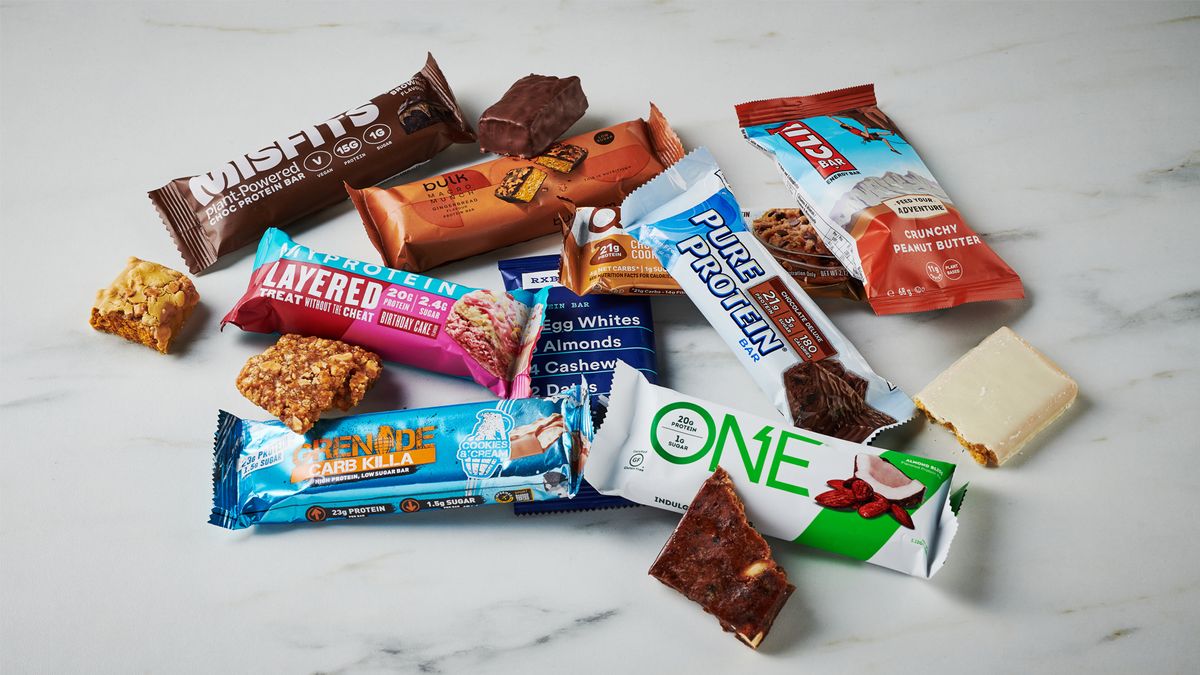Protein is an essential macronutrient crucial to maintaining overall health and well-being. It builds and repairs muscle tissue, supports immune function, and produces enzymes and hormones. However, many people struggle to consume enough protein through their regular diet alone. This is where protein bars come in. Protein bars are a convenient and effective way to incorporate more protein into your nutrition plan, whether you are an athlete looking to build muscle, someone trying to lose weight, or simply looking for a healthy snack.

Understanding the Importance of Protein in Your Diet
Protein is often called the building block of life, and for good reason. It is responsible for building and repairing muscle tissue, making it essential for athletes and individuals who exercise regularly. When you work out, you create small tears in your muscle fibers. Protein helps repair these tears and build new muscle tissue, increasing strength and improving athletic performance.
In addition to its role in muscle repair and growth, protein plays a vital role in many other body functions. It is involved in the production of enzymes and hormones, which regulate various processes in the body. Protein also helps support a healthy immune system, as it is necessary to produce antibodies that help fight off infections and diseases.
The recommended daily protein intake varies depending on age, sex, weight, and activity level. The general guideline for adults is to consume 0.8 grams of protein per kilogram of body weight per day. However, athletes and individuals who exercise regularly may require higher amounts of protein to support muscle repair and growth.
Benefits of Incorporating Protein Bars into Your Nutrition Plan
Protein bars can be a convenient and effective way to meet your daily protein needs. They are portable, easy to consume on the go, and can be a great option for individuals who struggle to find time to prepare or eat a protein-rich meal. Protein bars come in various flavors and formulations, making it easy to find one that suits your taste preferences and dietary needs.
One of the main benefits of protein bars is their convenience. They can be easily carried in your bag or pocket, making them a great option for a quick snack or meal replacement on the go. Protein bars are also shelf-stable, meaning they do not require refrigeration, making them a convenient option for travel or when you cannot access fresh food.
Many types of protein bars are available on the market, each with its unique formulation and nutritional profile. Some protein bars are made with whey protein derived from milk and are considered a complete protein source. Others are created with plant-based proteins such as peas or hemp, making them suitable for individuals following a vegan or vegetarian diet.
How to Choose the Best Protein Bars for Your Body
When choosing a protein bar, there are several factors to consider. First and foremost, you should look at the protein content of the bar. Aim for a bar that contains at least 15 grams of protein per serving. This will ensure that you are getting an adequate amount of protein to support muscle repair and growth.
It is also important to consider the sugar content of the protein bar. Many protein bars on the market are loaded with added sugars, which can negate the health benefits of the protein. Look for bars that contain less than 10 grams of sugar per serving, and opt for those sweetened with natural sweeteners such as stevia or monk fruit.
In addition to protein and sugar content, it is important to read the protein bar’s ingredient list. Look for bars that contain whole food ingredients and avoid those that contain artificial additives or preservatives. Some common pitfalls to avoid when choosing a protein bar include bars that contain hydrogenated oils, artificial sweeteners, and high-fructose corn syrup.
Top Protein Bars for Building Muscle and Recovery
Several protein bars on the market are specifically formulated to support athletes’ and bodybuilders’ goals of building muscle and aiding recovery. These bars often contain a higher protein content, typically around 20-30 grams per serving. They may also contain additional ingredients such as branched-chain amino acids (BCAAs) and creatine, which have been shown to enhance muscle recovery and growth.
Timing is also important when consuming protein bars for muscle recovery. Drinking a protein-rich snack or meal within 30 minutes of completing a workout is recommended to maximize muscle repair and growth. Protein bars can be a convenient option for post-workout nutrition, as they can be easily consumed immediately after exercise.
The Best Protein Bars for Weight Loss and Management
Protein bars can also be a helpful tool for individuals looking to lose weight or maintain a healthy weight. Protein is known to be more satiating than carbohydrates or fats, meaning it can help you feel fuller for longer and reduce cravings. You can help control your appetite and prevent overeating by incorporating protein bars into your diet.
When choosing protein bars for weight loss, it is important to look for bars low in sugar and calories. Aim for bars that contain less than 200 calories per serving and less than 10 grams of sugar. It is also important to consider the overall macronutrient balance of the bar. Look for bars with balanced protein, carbohydrates, and healthy fats to provide sustained energy and satisfy you.
Vegan and Plant-Based Protein Bars for Optimal Nutrition
For individuals following a vegan or plant-based diet, many options are available regarding protein bars. Plant-based protein bars are typically made with protein sources such as pea protein, hemp protein, or brown rice protein. These bars can provide all the essential amino acids needed for muscle repair and growth, making them a suitable option for vegans and vegetarians.
Plant-based protein bars also offer additional benefits, such as being free from lactose and cholesterol. They are also often lower in saturated fat and higher in fiber compared to traditional whey protein bars. This can be beneficial for heart health and digestion.
Gluten-Free and Allergen-Friendly Protein Bars for Sensitive Diets
Finding gluten-free protein bars is essential for individuals with celiac disease or gluten sensitivity. Fortunately, there are many gluten-free options available on the market. These bars are typically made with gluten-free grains such as oats or quinoa, or they may be made with alternative flours such as almond flour or coconut flour.
Many protein bars are gluten-free and free from other common allergens, such as nuts, soy, and dairy. This makes them a great option for individuals with food allergies or intolerances. When choosing a protein bar for sensitive diets, it is important to read the ingredient list carefully to ensure that it does not contain any allergens you need to avoid.
Protein Bars for On-the-Go Snacking and Energy Boosts
Protein bars are a great option for busy individuals who need a quick and convenient snack or energy boost. They can be easily carried in your bag or pocket, making them suitable. Protein bars can provide a quick source of energy before or after a workout, helping to fuel your body and aid in muscle recovery.
Consider the overall macronutrient balance when choosing a protein bar for on-the-go snacking or energy boosts. Look for bars with balanced protein, carbohydrates, and healthy fats to sustain energy. Avoid bars high in sugar or containing artificial additives, as these can lead to energy crashes and cravings.
How to Incorporate Protein Bars into Your Daily Routine
There are many creative ways to incorporate protein bars into your daily routine. One option is to use them as a meal replacement. If you are short on time or don’t have access to a healthy meal, a protein bar can provide a quick and convenient option to keep you fueled and satisfied.
Another option is to add protein bars to smoothies or other recipes. Crumble up a protein bar and mix it into your favorite smoothie recipe for an extra boost of protein and flavor. You can also use protein bars as a topping for yogurt or oatmeal or crumble them up and use them as a crust for healthy desserts.
Protein bars can be a great option for individuals who struggle to meet their daily protein needs through whole foods alone. They provide a convenient and portable source of protein that can be easily incorporated into your daily routine.
Tips for Maximizing the Nutritional Benefits of Protein Bars
To get the most out of your protein bars, there are several tips you can follow. First, pair your protein bar with a piece of fruit or some vegetables. This will help balance out the macronutrient profile of the bar and provide additional vitamins, minerals, and fiber.
It is also important to drink plenty of water when consuming protein bars. Protein requires water for digestion and absorption, so staying hydrated will help you get the bar’s full nutritional benefits.
Lastly, it is important to remember that protein bars should be used as part of a balanced and varied diet. While they can be convenient and effective to meet your daily protein needs, they should not replace whole foods entirely. Aim to incorporate a variety of protein sources into your diet, such as lean meats, fish, eggs, legumes, and dairy products, in addition to protein bars.
In conclusion, protein bars can be a convenient and effective way to incorporate more protein into your nutrition plan. They can help you meet your daily protein needs, provide a quick and convenient snack or meal replacement, and come in various flavors and formulations to suit your taste preferences and dietary needs. Whether you are an athlete looking to build muscle, someone trying to lose weight, or simply looking for a healthy snack, protein bars can be a valuable addition to your diet. So why not give them a try and see the benefits for yourself?














